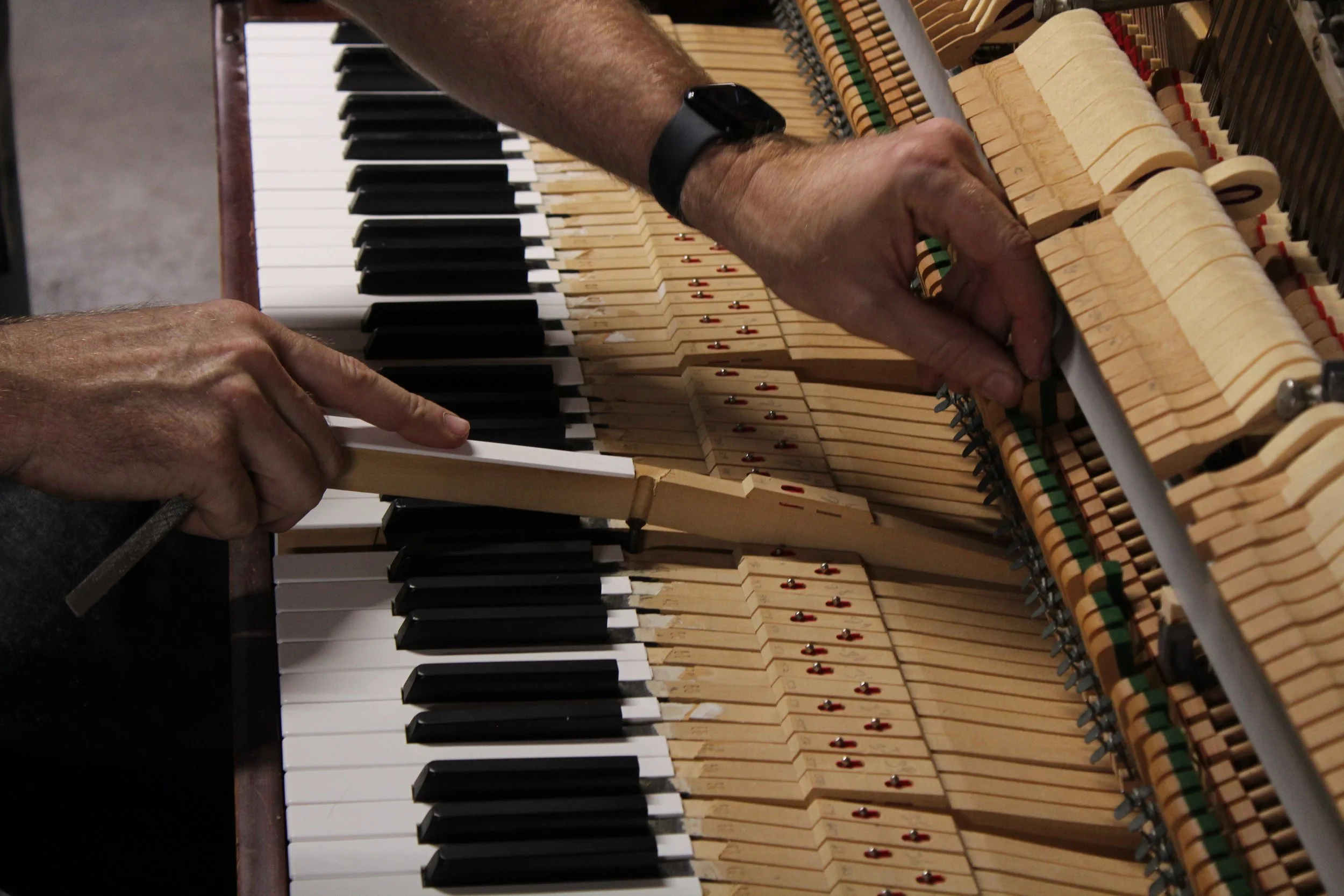Pianos Suffer in Summer Humidity
Tom Morse-Brown photo
As the Midwest heat increases, so does humidity—a potential hazard for your piano. Maintaining the best environment is crucial to your instrument's longevity and performance.
Pianos are primarily made of wood, which naturally responds to environmental changes. Wood absorbs moisture when the humidity is high and dries out when it’s low. This expansion and contraction can wreak havoc on several components of the piano, including the soundboard and piano action.
Humidity greatly affects tuning pins. Increased moisture in the air causes the piano’s wood to swell, putting more tension on the strings and altering pitch. An article from Modern Piano Moving offers these tips to safeguard your piano against the effects of summer humidity.
Maintain a stable indoor temperature and humidity using air conditioning. Air conditioners remove moisture from the air and help keep the environment consistent, which is vital for piano maintenance.
Avoid placing your piano against an exterior wall where temperature and moisture fluctuations are most significant. Interior walls are preferable. Also, keep the piano away from windows, doors, and direct sunlight.
Schedule regular maintenance with a professional piano technician. Seasonal check-ups can help ensure that any issues caused by humidity changes are caught early and addressed promptly.


